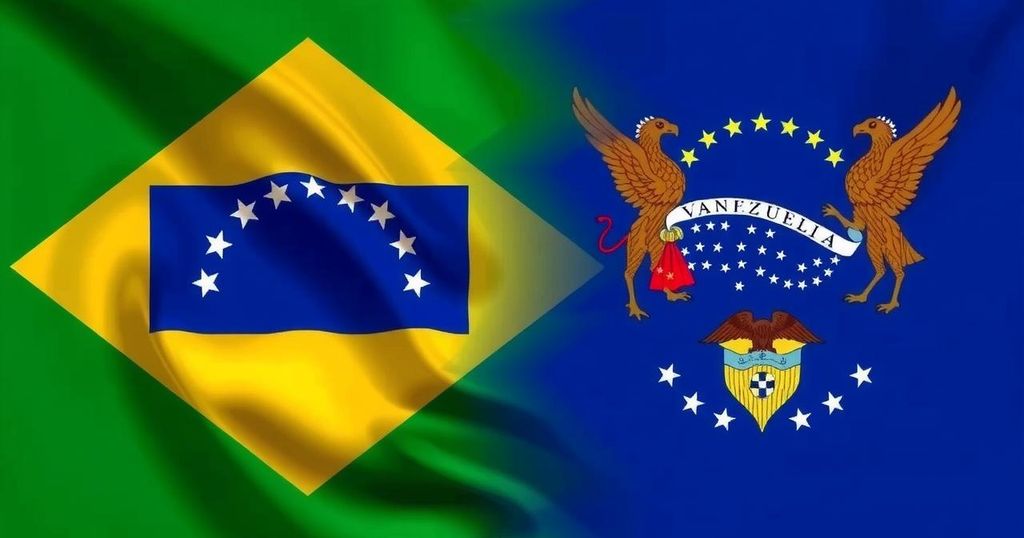Venezuela Withdraws Ambassador from Brazil Amid BRICS Membership Dispute
Venezuela has recalled its ambassador from Brazil following Brazil’s veto of its application to join BRICS, citing interventionist and rude remarks from Brazilian officials. Tensions have escalated amid allegations of electoral irregularities surrounding Venezuelan President Maduro’s recent election victory, which Brazil refuses to recognize.
In a significant diplomatic rift, Venezuela has recalled its ambassador from Brazil following Brazil’s decision to veto Caracas’s entry into the BRICS alliance during the recent summit in Kazan, Russia. The Venezuelan Foreign Ministry described Brazil’s actions as “interventionist” and “rude,” accusing Brazilian officials of blocking Venezuela’s membership bid and making disparaging remarks. The tensions intensified after President Nicolas Maduro, despite widespread allegations of electoral irregularity, claimed victory in the July elections, a result that Brazil’s President Luiz Inacio Lula da Silva has refused to recognize. In retaliation for the veto, Venezuela has summoned Brazil’s business envoy for discussions. This incident underscores the escalating discord between the two South American nations, previously connected through socialist leadership, as Venezuela perceives Brazil’s actions as an affront to its sovereignty. Moreover, the Foreign Ministry explicitly criticized Brazil’s top foreign policy adviser, Celso Amorim, alleging that his justifications for the veto were influenced by American imperial interests. The deteriorating relations are further complicated by ongoing regional dynamics, including the controversial electoral processes within Venezuela and the subsequent crackdown on opposition figures.
The BRICS alliance, comprising Brazil, Russia, India, China, and South Africa, has evolved to include several new member countries. Venezuela’s desire to join this prestigious group reflects its aspiration for greater international acceptance amidst political isolation. The current tensions between Venezuela and Brazil stem from Brazil’s refusal to recognize Maduro’s electoral victory, which is widely contested internationally. This political strife is occurring against a backdrop of social unrest and government repression in Venezuela, with the opposition claiming significant voter support during the disputed elections. The diplomatic friction signifies a deeper ideological divide and contrasting foreign policy trajectories between the two nations.
The recent diplomatic escalation between Venezuela and Brazil, spurred by Brazil’s veto of Venezuela’s BRICS membership, illuminates the profound political rift and diverging foreign policy stances within the region. The Venezuelan government’s actions in response to perceived slights from Brazil reveal a tense atmosphere influenced by longstanding historical ties now severed by political disputes and electoral controversies. As Venezuela navigates through domestic strife and seeks international legitimacy, the relationship with Brazil remains a critical focal point in South American politics.
Original Source: www.aljazeera.com




Post Comment